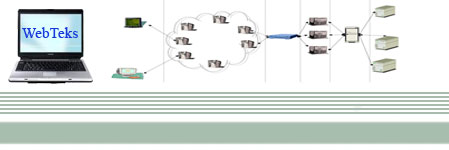|
| Wednesday, March 21, 2007 |
| The Google API |
Introduction: The Google API stands for ‘Application Programmable Interface’. As it’s name implies, it is an interface that queries the Google database to help programmers in the development of their applications. At this point, it is important to remember that all of Google’s APIs are only available in beta version, which means they are mostly still in their initial trial release and that there could still be a few adjustments required to some of them.
How can Google API’s be used effectively?: By definition, Google API’s consist basically of specialized Web services and programs and specialized scripts that enable Internet application developers to better find and process information on the Web. In essence, Google APIs can be used as an added resource in their applications.
In the real world, application programmers, developers and integrators write software programs that can connect remotely to the Google API’s. All data communications are executed via the ‘Simple Object Access Protocol’ (SOAP), which is a Web services standards as defined by the industry. The SOAP protocol is an XML-based technology meant to easily exchange information entered into a Web application.
Google’s API can better assist developers in easily accessing Google's web search database, empowering them in developing software that can query billions of Web documents, constantly refreshed by Google’s automated crawlers. Programmers can initiate search queries to Google's vast index of more than three billion pages and have results delivered to them as structured data that is simple to analyse and work with.
Additionally, Google API’s can seamlessly access data in the Google cache, while at the same time provide checking in the spelling of words. Google APIs will in fact implement the standardized search syntax used on many of Google’s search properties. Use of Google’s API’s in the real world. Here I will give a few examples of real-life Web applications that could effectively use Google API’s.
Currently, Google issues each programmer or developer who registers to use the API's a set limit of one thousand queries per day. Some think that number could increase in the future, but for now, that is the imposed limit at the “Googleplex”. Google’s API is an experimental program that is provided free to anybody that agrees to it’s terms. As of now, the available resources to fully implement and support the program are rather limited, which explains why there is a 1,000 queries a day limit on all accounts.
Registering yourself first: In order to be able to use and implement any Google API’s you must first agree to the terms and promise to abide by Google’s rules concerning it’s API’s. You will also have to create a Google ‘API account’. Once you have done all that, Google will email you a personal license key to use with your APIs.
Remember that when you build an application, you must integrate your API account number in your code. That way, every time your Web application makes a request or queries Google’s database, your license key is part of the query string.
More on the Google API account: Creating an API account with Google is simple. All you need to do is to go to www.google.com/apis and simply follow the easy instructions on your screen. You will be required to provide your email address and a password. Currently, Google rules and regulations forbid you from having more than one account.
One word of caution about Google API’s: remember that you cannot create or develop any industrial application or commercial querying program or software using Google’s API technology, without first obtaining a valid and written consent from Google.
References: Google Inc.Labels: API, Google |
posted by WebTeks @ 9:14 PM  |
|
|
|
|
|
|
|
|
|
|
|
|
| Previous Post |
|
| Archives |
|
| Links |
|
| Template by |

 |
|


















